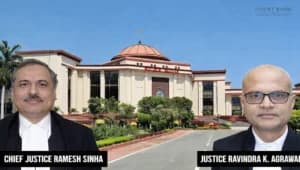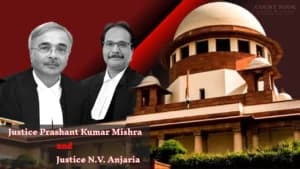In a clear message to the lower judiciary, the Supreme Court on Monday (October 13, 2025) overturned a Calcutta High Court order that had blocked a Magistrate’s directive requiring a person to provide a voice sample during a criminal investigation. The bench, led by Justice K. Vinod Chandran and Justice B.R. Gavai, said the High Court “egregiously entertained” a purely academic issue that was already settled by precedent.
“The High Court refused to follow the binding precedent of this Court,” the bench observed, adding that even the so-called ‘reference to a Larger Bench’ had already been dismissed on default.
Background
The case arose from the tragic death of a 25-year-old married woman in February 2021, leading to allegations of harassment and counterclaims of extortion between the two families. During the investigation, the police alleged that one of the accused - the second respondent in this case - had threatened a key witness on behalf of the deceased’s father.
To verify the allegations, the investigating officer requested permission to collect the respondent’s voice sample. The Magistrate allowed it, but the order was later challenged in the High Court, which quashed it citing the absence of an explicit provision under the old Criminal Procedure Code (CrPC) and mentioning that the issue was pending before a larger bench of the Supreme Court.
Court’s Observations
Hearing the appeal filed by complainant Rahul Agarwal, the Supreme Court found the High Court’s reasoning completely unsustainable. “The question was already decided in Ritesh Sinha v. State of Uttar Pradesh (2019),” the bench reminded, emphasizing that Magistrates do have the power to direct individuals - not just accused persons - to give voice samples for investigation.
Justice Chandran explained that the constitutional bar on self-incrimination under Article 20(3) only applies when someone is compelled to testify against themselves. Providing a voice sample, he said, is not a “testimonial act” but merely a piece of physical evidence - much like giving fingerprints or handwriting samples.
Quoting from earlier judgments, the court reiterated that “a specimen handwriting or signature or finger impression by itself is wholly innocuous” and that similar reasoning applies to voice samples.
The bench also noted that with the introduction of the Bhartiya Nagarik Suraksha Sanhita (BNSS), 2023, there is now a specific legal provision (Section 349) allowing such voice tests, making the debate even more redundant.
Decision
Concluding the matter, the Supreme Court set aside the High Court’s order and restored the Magistrate’s directive, allowing the police to proceed with collecting the respondent’s voice sample.
Read also:- Allahabad High Court Dismisses Tenant's Revision, Grants One-Year Time to Vacate Premises After Long
“We find no reason to uphold the impugned order,” the bench declared, underscoring that the High Court’s approach was contrary to established law.
The appeal was accordingly allowed, and the bench directed that the respondent must comply with the Magistrate’s order without further delay.
Case Title: Rahul Agarwal v. State of West Bengal & Anr.
Citation: 2025 INSC 1223
Case Type: Criminal Appeal arising out of SLP (Crl.) No. 5518 of 2025
Date of Judgment: October 13, 2025














